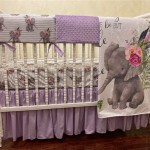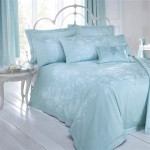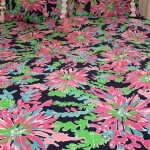Essential Aspects of the Best Bedding Materials
When it comes to a good night's sleep, the materials used in your bedding can make all the difference. Different materials offer unique properties that can affect your comfort, temperature regulation, and overall sleep quality. Understanding the essential aspects of bedding materials will help you make an informed decision when selecting the best bedding for your needs. ### Comfort and Softness The comfort and softness of your bedding play a vital role in ensuring a restful sleep. Natural materials like cotton and silk are known for their soft and breathable textures, providing a cozy and comfortable sleeping surface. On the other hand, synthetic materials such as polyester and nylon may feel less soft and breathable, leading to discomfort during the night. ### Temperature Regulation Temperature regulation is another crucial aspect to consider. Breathable materials like cotton, linen, and bamboo help regulate body temperature by wicking away moisture and keeping you cool during warm nights. Conversely, materials like flannel and fleece provide insulation and warmth, making them ideal for colder temperatures. ### Durability and Washability Durable bedding materials will withstand frequent washing and maintain their quality over time. Natural fibers like cotton and linen are generally more durable than synthetic materials, which can degrade or pill after repeated washes. It's also important to consider the washability of the materials, as regular washing is essential for hygiene and maintaining the freshness of your bedding. ### Hypoallergenic Properties For those with allergies or sensitive skin, hypoallergenic bedding materials are essential. Materials like cotton, silk, and bamboo are naturally hypoallergenic, reducing the risk of allergic reactions. Synthetic materials, on the other hand, can sometimes trap allergens and exacerbate allergies. ### Moisture-Wicking Ability Moisture-wicking materials are crucial for managing moisture during the night. Natural materials like cotton, linen, and bamboo absorb moisture effectively, keeping you dry and comfortable. Synthetic materials, while water-resistant, may not absorb moisture as well, leading to dampness and discomfort. ### Wrinkle Resistance Wrinkle resistance is an additional consideration, especially for those who prefer a neat and tidy bed. Materials like Egyptian cotton, sateen, and silk are known for their wrinkle-resistant properties, requiring less ironing or steaming. Synthetic materials can often wrinkle more easily, making them a less convenient option for those who value a smooth and polished look. ### Environmental Considerations For those concerned about the environmental impact of their bedding, choosing sustainable materials is essential. Organic cotton, bamboo, and hemp are all eco-friendly options that are grown without the use of pesticides or harmful chemicals. These materials are biodegradable and have a lower environmental impact compared to synthetic materials.
What Is The Best Material For Bed Sheets And Why

What Is The Best Material For Sheets Bedpost

What Is The Best Material For Double Bed Sheets

Best Material For Luxury Bed Sheets

Best Material For Bed Sheets Our Top 9 Picks Hush Blankets

Microfiber Vs Bamboo Sheets Which Material Is Best Hush

Which Is The Best Bedding Material Livingetc

17 Best Bedsheets According To Experts 2024

The Best Cotton Sheets For 2024 Reviews By Wirecutter

Bed Sheet Guide How To Buy The Best Bedding For You Delarahome
Related Posts








